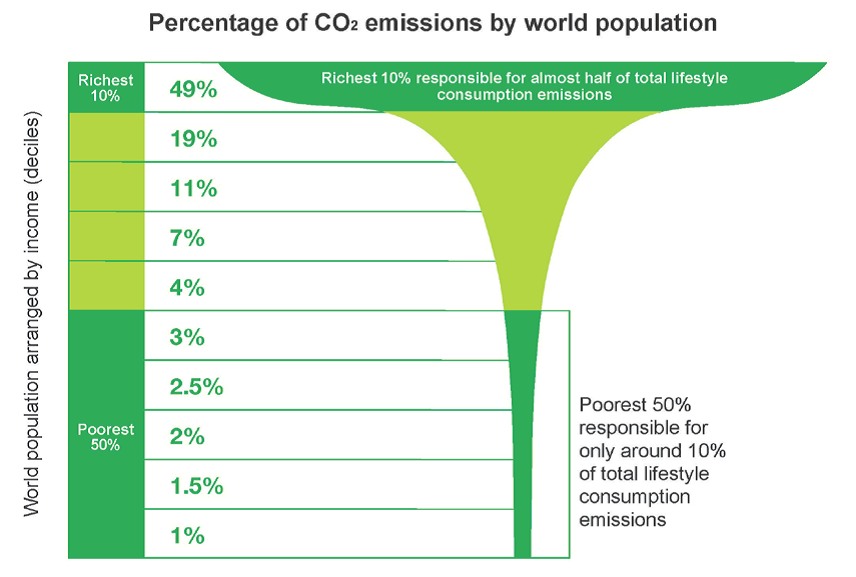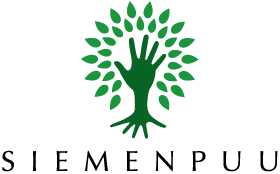[Marko Ulvila] In 2000, Paul Crutzen and Eugene Stoermer introduced the term anthropocene (pdf) to describe a new geological epoch caused by human activity. Since then the idea has gained acceptance and popularity. Now there is scientific journal with that name, and newspapers write how humans are now leaving a mark on a geological scale. The beginning of anthropocene can be dated to emergence of agriculture some 8000 years ago or to the great acceleration of human economy and related biophysical flows from the late 1940’s – or any time in between.
In the recent European conference on political ecology in Stockholm the keynote speakers Catherine Larrère from Paris and Alf Hornborg from Lund made critical remarks about the concept of anthropocene. They were critical of portraying the whole humanity as the driving force for such shift of geological scale, since in biophysical terms it is the high-income minority that is responsible for the bulk of the environmental impact. Moreover, humans act in a social and political system that drives the activities that have a global impact. Therefore capitalocene has been suggested as a better term.
In the conference, I chipped in to the debate by proposing plutocene as an appropriate alternative. Together with Kristoffer Wilén we made a presentation in a session on environmental conflicts (pdf) where we proposed to call the new epoch as plutocene – the era of the wealthy – using the Greek word ploutos (πλοῦτος), as in plutocracy. A rule of thumb applies that the richest 10 % of the humanity cause half of the global environmental damage. This has been firmly established recently before the Paris climate conference in the case of climate destabilisation e.g. by the Oxfam report on Extreme Carbon Inequality and the study on Carbon and Inequality (pdf) by Lucas Chancel & Thomas Piketty.
A well known champagne glass income distribution applies also to pollution (see the graph from the Oxfam report below). It is therefore preposterous to call the new epoch anthropocene or climate change anthropogenic, since the problem is largely caused by the minority of less than 2 bn people and the unsustainable political and ecological system structured to serve their/our short sighted interests.

In the presentation we also suggested a framework for dealing with the unequal income distribution and related environmental harm. For the over-consuming classes or income groups, degrowth would be needed, while empowerment is urgent for the the poor and struggling classes. For the large sustainable class in the middle, recognition and respect is the appropriate way.
The conference on political ecology in Stockholm was a refreshing forum of learned discussion on the underlying causes of the current predicament and ways to deal with it. Work on the combined aim for social justice and ecological sustainability needs urgently new insights and energies, because the global environmental problems aggravate day by day and billions of people are unable to meet the basic needs in a sufficient and dignified ways. Political ecology is an increasingly promising resource for anyone interested in sustainable future.
Political ecology is an academic discipline that looks at environmental change and conflicts in the context of power relations and unequal distribution of benefits and costs. There is much interest in the processes in the Global South and the topics if interests include degradation and marginalization, conservation and control, and environmental identities and social movements. People active in political ecology have background in wide variety of social sciences.
The key topics of the Stockholm conference were decolonial political ecology, post-capitalist ecologies and enclosures vs. commoning. Enthusiastic audience listened to insightful key-note presentations in the largest hall of the student union of the Royal Technological Universty KHT. Unlike standard academic conferences, the event was organised in an affordable manner so that also students and activists could attend and contribute.
In the other sessions I managed to attend, lots of insights emerged. For example in the migration session, it was stated how the rulers of Syria prefer to point the draught and even climate change as a major cause for the terrible civil was in order to hide the political and social origins of the conflict. Degrowth featured in several sessions providing a good continuity in the light of the forthcoming conference in Budapest later this year.
In a session organised by Sámi scholars May-Britt Öhman and Gunilla Larsson, the history and continuation of the colonisation by the Nordic nation states was revealed and the initiatives of resistance and resurgence of the Sámi activists were introduced. Henrik Andersson joined the session over video-link and bit of a documentary describing his year with the reindeer in a traditional ways was shown.
There was also an evening presentation by the Transformations to Sustainability programme by the International Social Science Council. The programme is supported by the Swedish International Development Agency SIDA and supports and advances research on the social transformation needed to secure solutions to the most urgent problems of global change and sustainability. Three Transformative Knowledge Networks that are jointly run by an institution in the global south and north. Especially the one on environmental justice that is coordinated by Indian organisation Kalpavriksh could be an important resource for activists and scholars alike.
Marko Ulvila, 29.3.2016
Writer is the Chairperson of Siemenpuu Foundation

